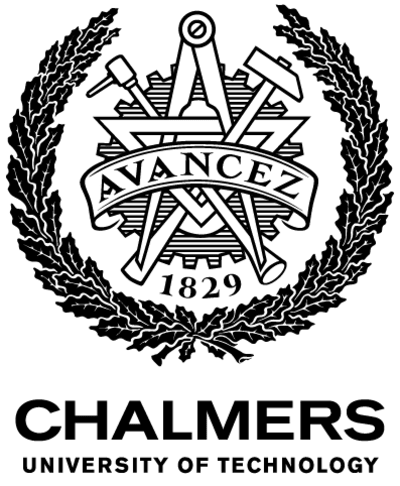
MSc in Biotechnology: Biomolecular Science and Technology
Chalmers University of Technology

Key Information
Campus location
Gothenburg, Sweden
Languages
English
Study format
On-Campus
Duration
2 years
Pace
Full time
Tuition fees
SEK 160,000 / per year *
Application deadline
Request info
Earliest start date
Request info
* tuition fees for non-EU/EEA students
Introduction
Contribute to improving modern medicine and fighting back against deadly diseases by delving deep into the world of biomolecular science. You will receive an in-depth education in subjects including protein function, stability, structure, production, and design. Alongside this, you will also focus on the physical chemistry of RNA and DNA and the biological chemistry of molecular interactions within the cell – knowledge that is essential for modern drug design and for understanding the molecular mechanisms of health and disease.
Studying this program, you will focus on the interface between chemistry, biology, and medicine, with engineering as the common thread. You will learn to use engineering principles in the analysis and manipulation of biological systems to solve problems across a wide spectrum of vital applications. When you choose the Biomolecular science and technology profile, you will study the following courses in particular:
- Biophysical chemistry
- Protein folding and function
- Applied bioinformatics
- Advanced analytical chemistry-proteomics and metabolomics
- Design and production of biomolecules in biomedical toxicology
- Structure and dynamics of biomolecules
The master's program as a whole covers a broad base, from genetics to process engineering. Expertise comes from a wide range of interdisciplinary sources, including the Departments of Biology and Biology Engineering, Chemistry and Chemical engineering, and Physics.
In recent decades, gene modification has revolutionized the biotechnology industry, giving rise to countless new products and improving established processes. But biotechnology, as practiced today, is much more than this — it also embraces process design, engineering, modeling, and systems of control. You will be exposed to the full breadth of the field in your education here.
The practical applications of biotechnology include techniques stretching back to the beginning of human history, such as brewing, fermentation, and cheese making — all of which are still important today. But the progress of fundamental biological research and technologies in recent decades has resulted in major advances. Microorganisms and cells are utilized to produce valuable products of all kinds, and new medicines are often products of the field of biotechnology.
The subjects of tissue engineering and applied microbiology are fundamental areas in the Biotechnology master’s program for all profiles. After graduation, you will be well placed to pursue a career either in research in the bioscience field or enter the professional industries of biotechnology, food, and biomedicine. Former graduates work at international companies such as Astra Zeneca and Essity whereas others work in smaller start-ups or as consultants. Others continue their academic studies through Ph.D. research.
General entry requirements
A Bachelor's degree in Science, Engineering, Technology, or Architecture
To fulfill the general entry requirement for a Master's program at Chalmers (at advanced level/the second cycle), the prospective student must hold a degree that is equivalent to a Swedish Bachelor's degree (minimum 3 years, 180 Swedish higher education credits) in either Science, Engineering, Technology or Architecture.
- All applicants must document their formal academic qualifications to prove their eligibility. Only documentation from internationally recognized universities will be approved by the Swedish Council for Higher Education which manages the website universityadmissions.se.
- If an applicant is also a holder of a second degree such as a Master's degree, that may be to fulfill specific (course) requirements, it cannot be used to fulfill the general entry requirement on its own.
In your final year of Bachelor's Studies
Students in their last year of studies who don't yet have documentation of their soon-to-be-completed degree can be accepted.
Restrictions
Degrees that are constructed on one another cannot consist of the same course
Applicants who fulfill the general entry requirements for the second cycle (master’s level) programs and eventually specific entry requirements can be admitted to a master’s program. Applicants cannot be evaluated as unqualified in the qualifying academic merits which include courses from the program’s plan in those programs that they have applied for if that occurs.
Courses included in an earned first cycle degree (bachelor’s level) or professional qualification of at least 180 cr. (180hp) or the equivalent foreign qualification that are prerequisites for master’s qualifications may not be included in the higher qualifications. This also applies to prerequisite courses for master’s programs, regardless of whether they are included in the underlying qualification. *
*) Local Qualifications Framework for Chalmers University of Technology - first and second cycle qualifications.
Restrictions for Citizens from the Democratic People’s Republic of Korea (North Korea)
Chalmers cannot admit applicants with citizenship of the Democratic People’s Republic of Korea only to any program or course, due to the Council Regulation (EU) 2017/1509 of 30 August 2017 concerning restrictive measures against the Democratic People's Republic of Korea and repealing Regulation (EC) 329/2007.
For applicants with double citizenship of which one is of the Democratic People's Republic of Korea and the other of another country, the citizenship of the other country has precedence in this respect.